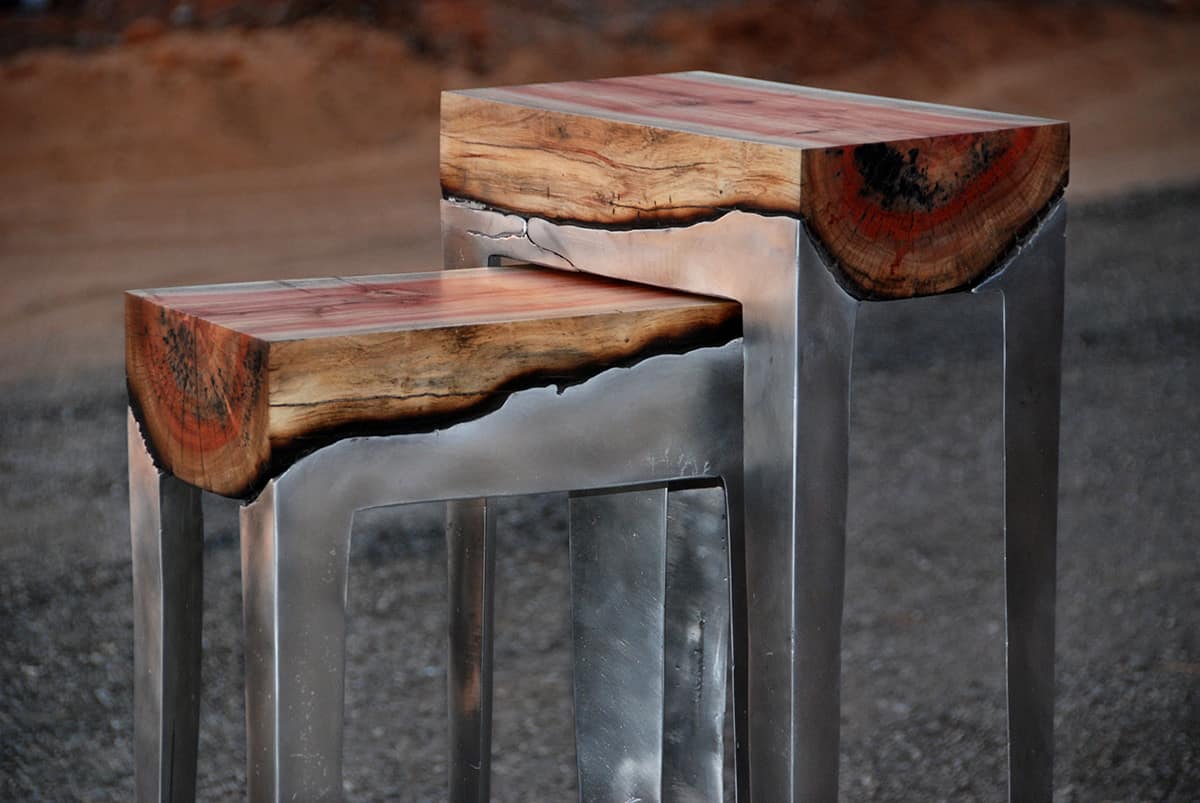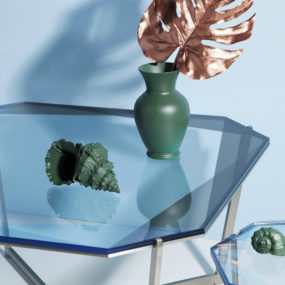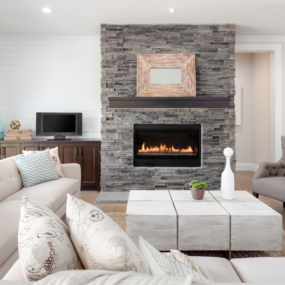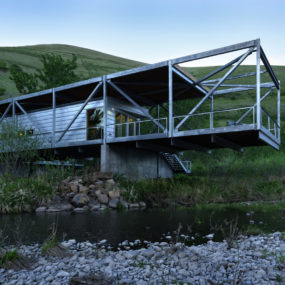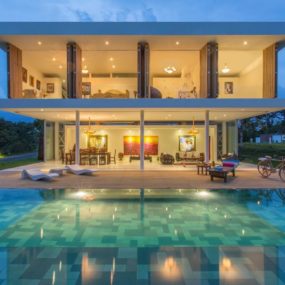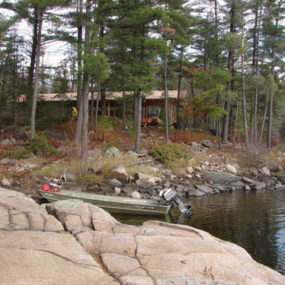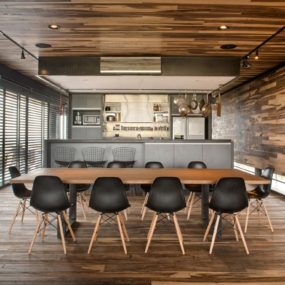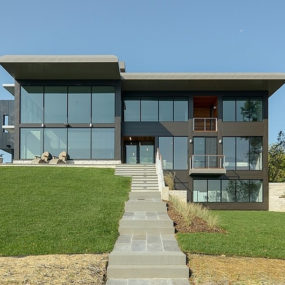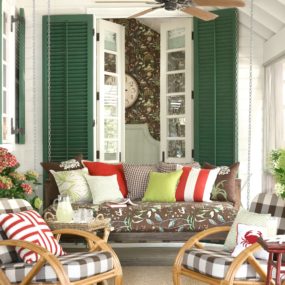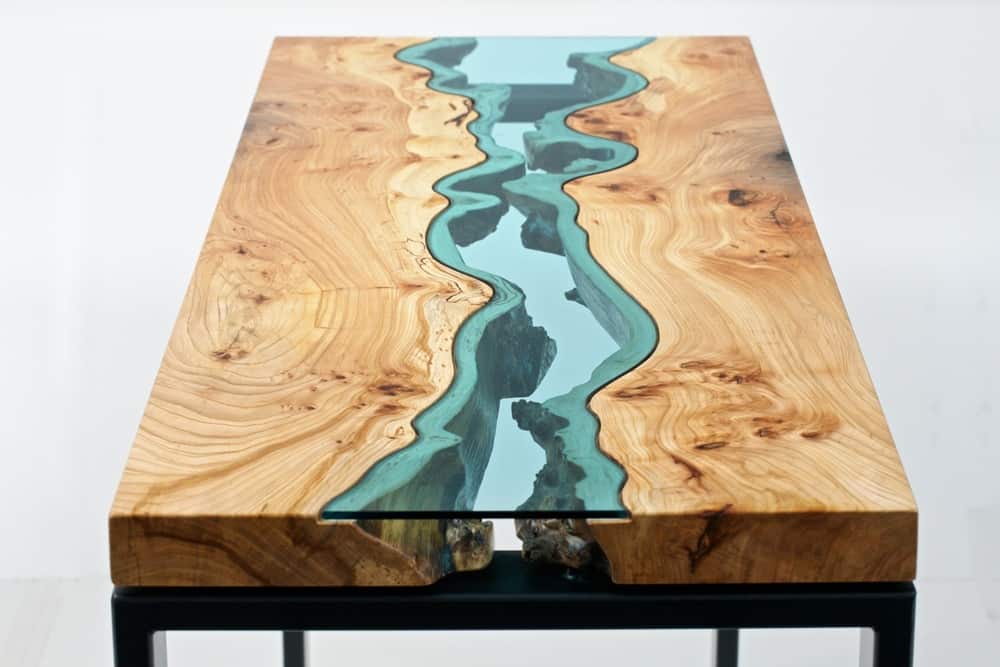
Located in Lynden, Washington, USA, Greg Klassen is a woodworker that is inspired by the idiosyncrasies within wood slabs before they have been milled into standard shapes and sizes. The more twisted, cracked and raw the slab is, the more excited he becomes and the more he can’t wait to roll up his sleeves and get working.
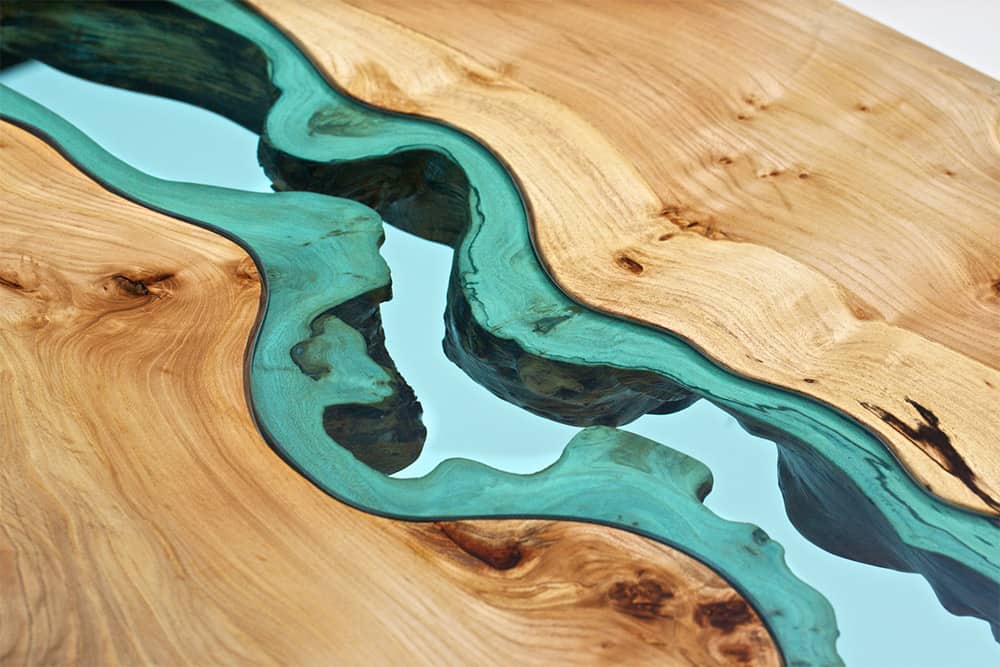
Greg marries two living edge slabs – not with the random lines on the outside of the piece as what we all have become accustomed to seeing but with the meandering natural curvatures facing each other towards what will be the center of the finished piece.
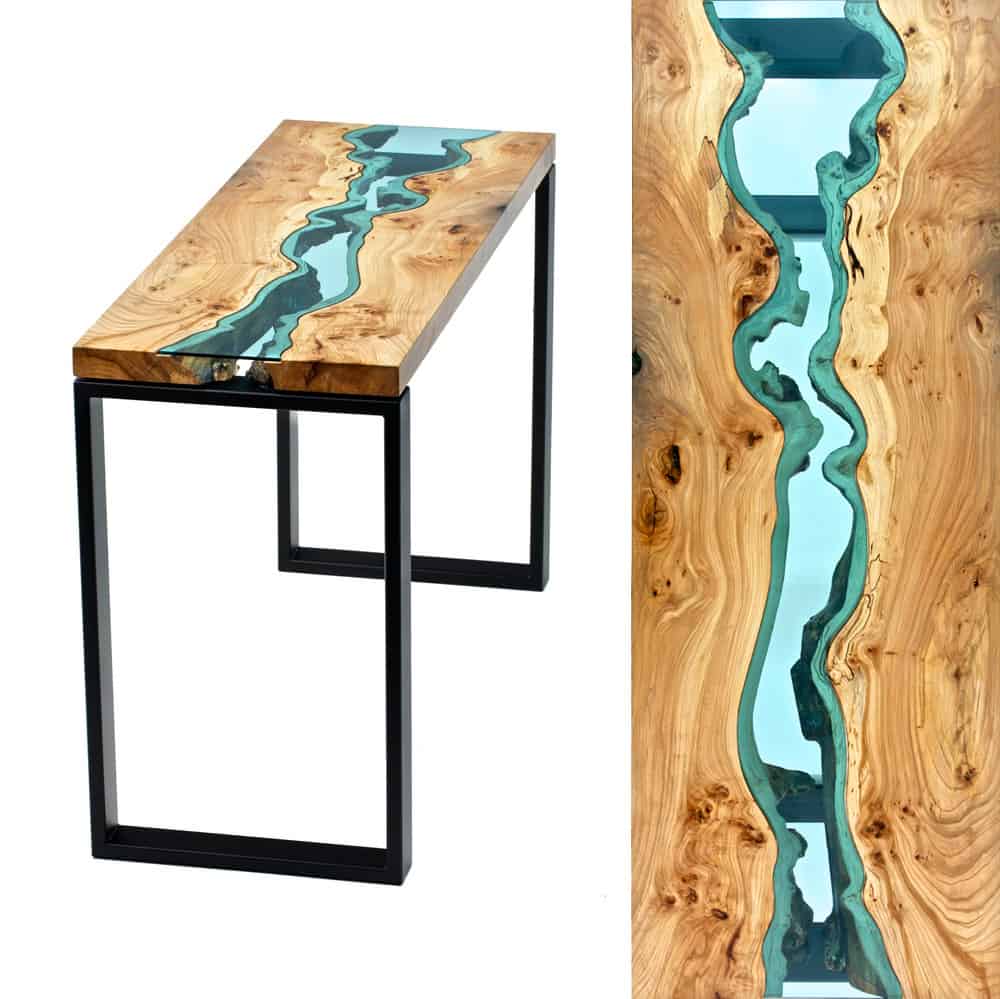
The living edges are then rabbeted out to create a support for a hand cut tinted blue glass sheet that will span the two slabs, creating one continuous surface.
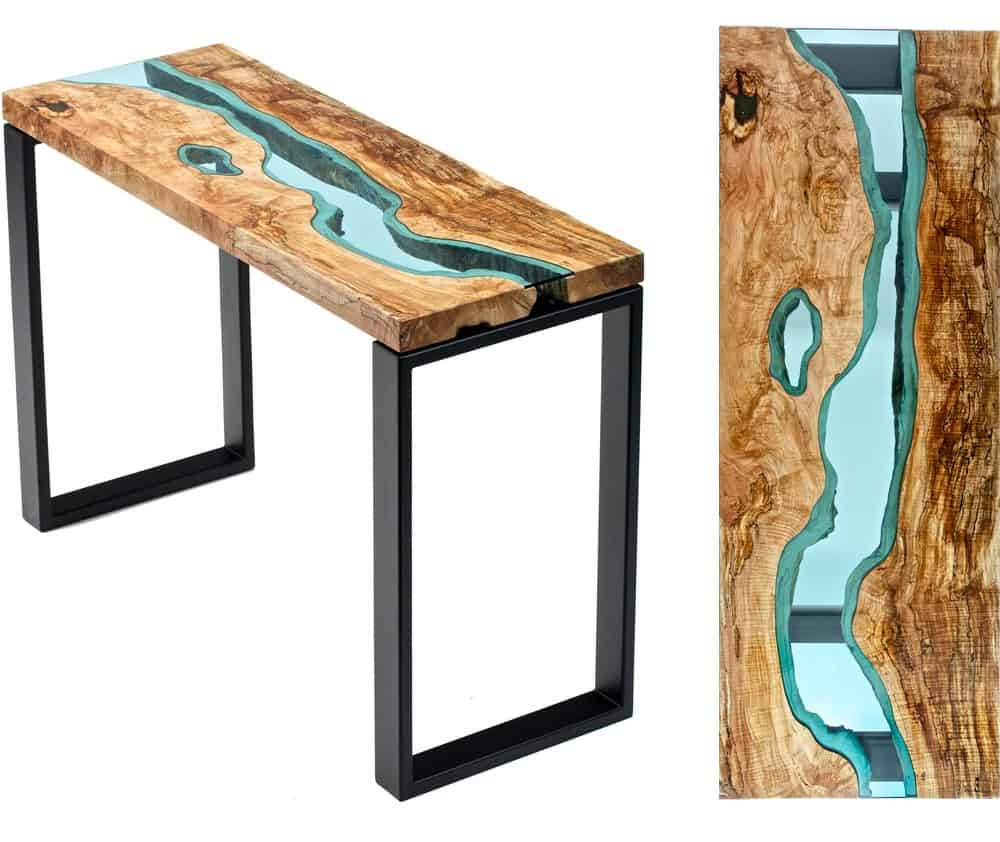
Voids are also treated the same way and have the appearance of small ponds or lakes within the wood top.
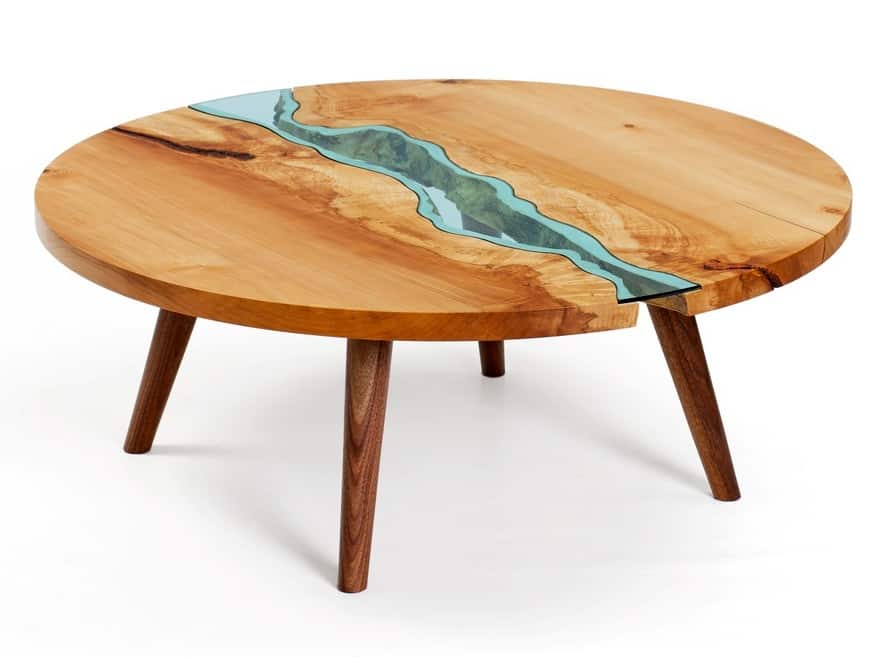
Book matched slabs can be used to create a similar graining on either side of the glass river and the table tops can be rectangular, square or round – depending on the size of the wood chunk used.
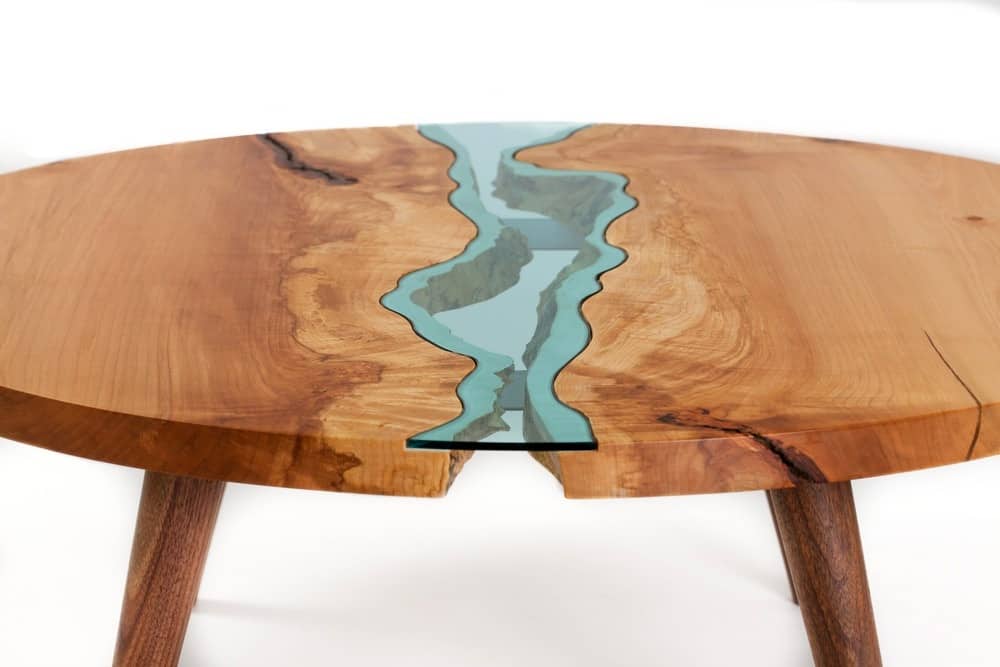
Small checks and splits are left au naturale, adding to the natural patina of the surface.
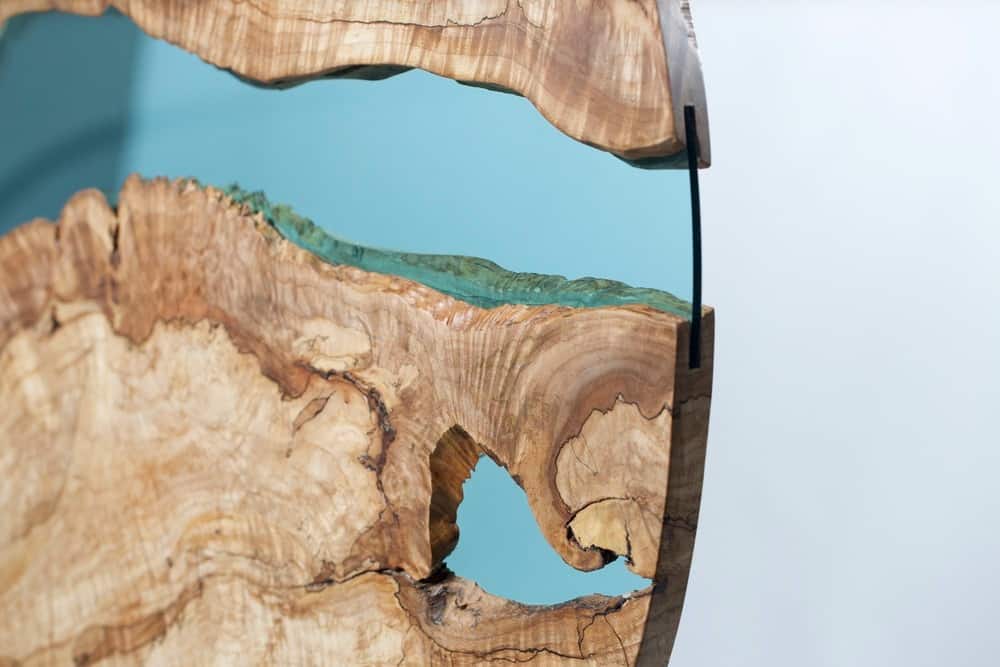
Sometimes the glass is fitted into a routered rebate to create a lowered crevice rather then one continuous flat surface.
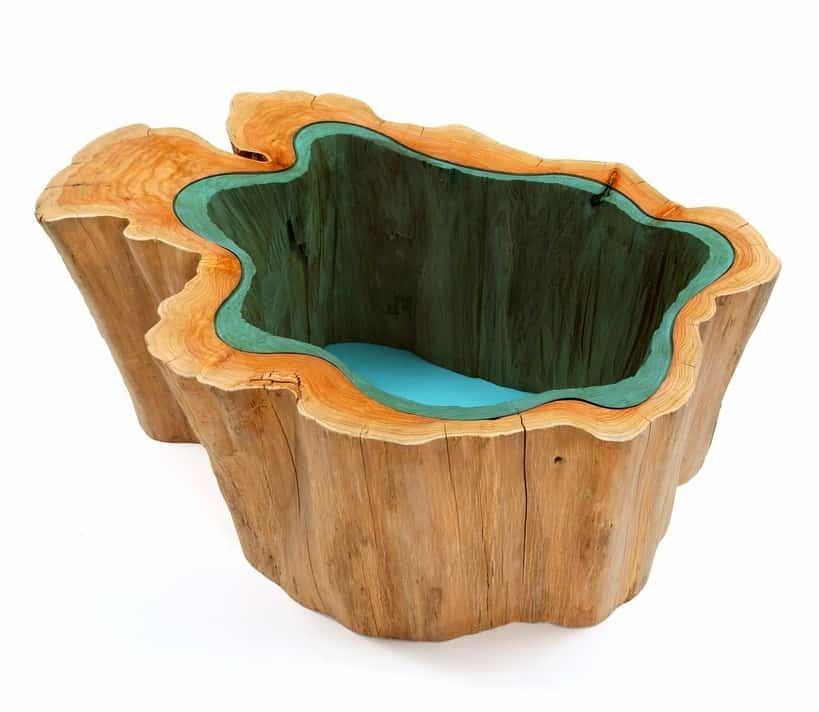
When Greg finds a log chunk with its interior rotted out, he cleans up the inner void, and repeats the rabbeted inner support as a glass support and creates pretty awesome looking side tables out of them.
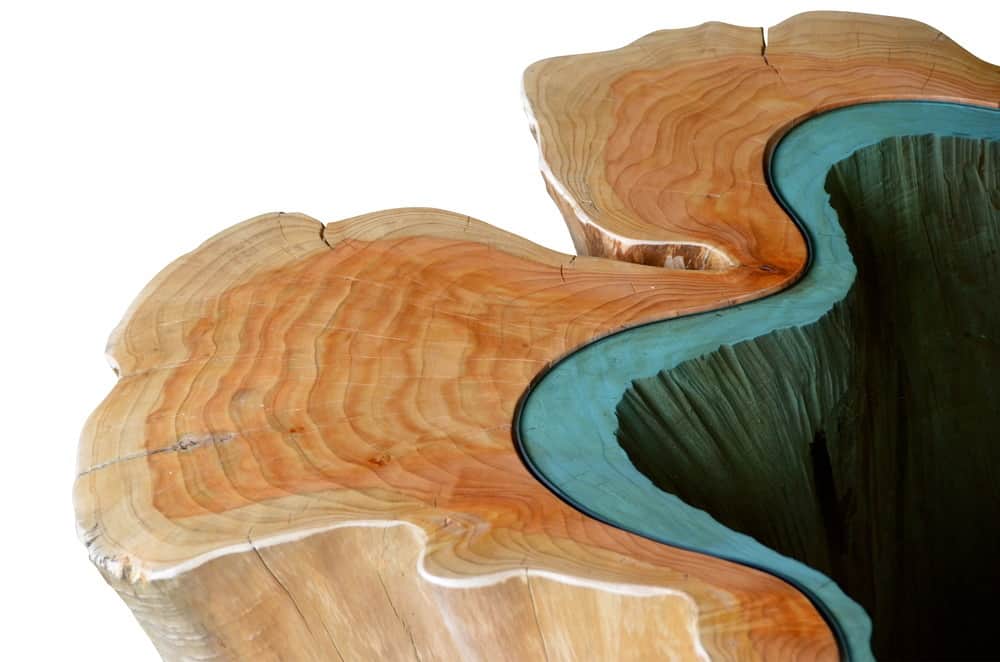
What’s really cool about the rabbeting is the way they take on the look of the land just beneath the waters surface, adding to the water aesthetic of the blue glass.
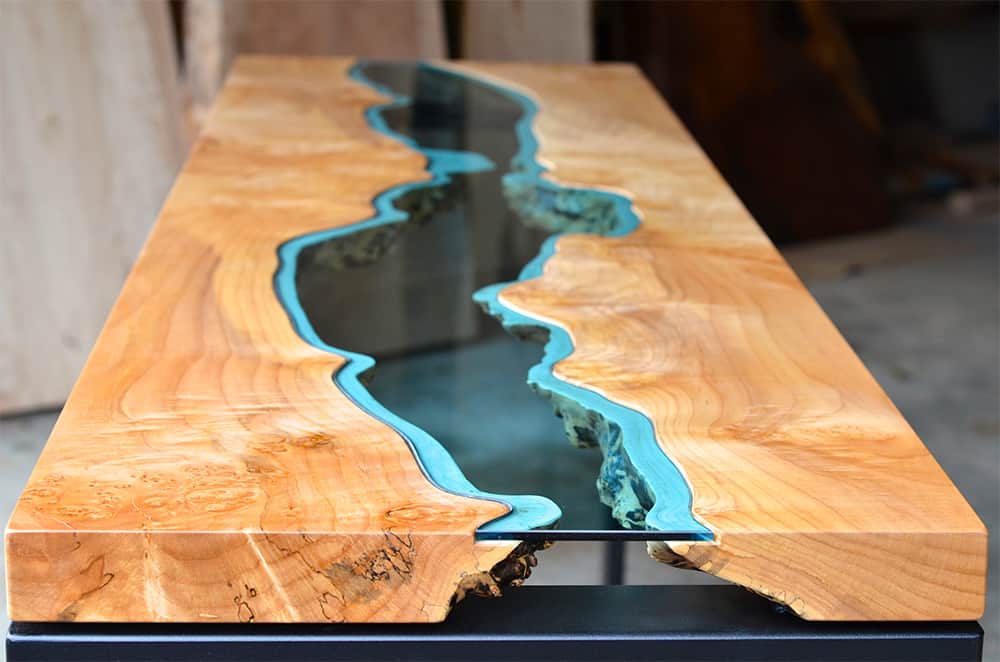
All of Greg’s wood come from discarded or dying trees that have begun to show signs of rot and the combination of these less then perfect tree sections and his Pacific Northwest location inspire Greg to create his topographical furnishings that are as much art as they are function.
Greg Klassen
